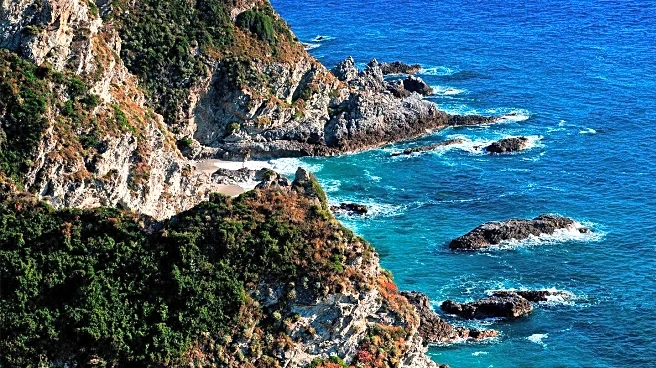What's Happening?
Authorities in Guardamar del Segura, Spain, have closed beaches after sightings of venomous sea creatures known as 'blue dragons.' These marine animals, scientifically named Glaucus atlanticus, are rarely seen in the Mediterranean but have appeared near Vivers Beach. The blue dragon feeds on venomous prey like the Portuguese man o’ war, concentrating their stinging cells in its tissues, making it more venomous than its prey. The creatures can deliver painful stings causing nausea, vomiting, and allergic reactions in humans. Mayor José Luis Sáez issued a red flag warning and deployed a preventive device to monitor the shoreline.
Why It's Important?
The appearance of blue dragons in a popular tourist area highlights the unpredictability of marine ecosystems, potentially linked to climate change and shifting ocean currents. The incident underscores the need for public safety measures in coastal regions, especially during peak tourist seasons. It also raises awareness about the ecological changes affecting marine life and the importance of monitoring and adapting to these changes to protect both residents and visitors.
What's Next?
Local authorities may continue to monitor the beaches for further sightings and assess the impact of these creatures on tourism and public safety. Environmental studies could be conducted to understand the factors contributing to the unusual presence of blue dragons in the area. Public advisories and safety protocols might be updated to ensure preparedness for similar occurrences in the future.










